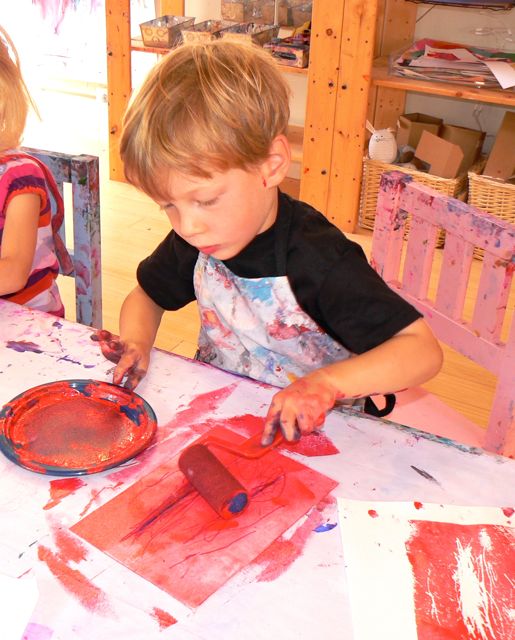After trying out the leaf rubbings, I offered the children chalk pastels to explore.
They experimented with rubbing, drawing, and blending this soft, dusty medium.
Then I offered them water and a brush to see what would happen if the pastel got wet. As they painted their drawings with water, the chalk dust mixed with the water and turned it into a colorful paint.
After wetting their papers, they drew again with the pastel and noticed how the colors became darker against the water.
Being our first drawing project for the youngest 1s class, we focused on making marks with oil pastels, then trying out liquid watercolor over the drawings.
No matter what age, all the classes love to paint, mix, and pour watercolors. Especially when glitter is involved!
The 1s classes also got to do some major sensory painting with foam paint.
Foam paint on the acrylic easel adds a twist to this sensory experience!
Remember the clay etching experiment in the 3s/4s class? The clay was dry and finally ready for the 3rd step to complete the process. In order to try to rub off some of the top paint, the children moved sand paper around in circles on top of their clay. The hope was that this would roughen up the top, leaving mostly the paint inside the scratches, so their design would stand out.
It was a little hard to sand off the top layer of paint, but they did manage to achieve a cool effect!
Thanks everyone for a great school year and final session. I had a blast!






































































